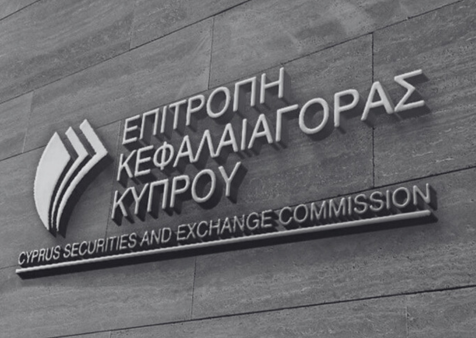On the 13th May 2022, the Cyprus Securities and Exchange Commission (CySEC) announced that the online platform for the Cyprus Beneficial Ownership Register of Express Trusts and Similar Legal Arrangements (CyTBOR) will be accessible to trustees as of 17/05/2022 and all involved parties as of 17/06/2022.
CyTBOR is the service through which trustees submit beneficial ownership information regarding express trusts and similar legal arrangements, to comply with their registration obligations under section 61C(5)(a) and section 61C(5)(b) of the AML/CFT Law. The function and rules governing the CyTBOR are described in section 61C of the AML/CFT Law and in CySEC’s Directive for the Prevention of Suppression of Money Laundering Activities (Beneficial Ownership Register of Express Trusts and Similar Legal Arrangements) (the ‘’Directive’’).
The purpose of CyTBOR is to enhance transparency in relation to the ownership and control of express trusts and similar legal arrangements, which is expected to act as an impetus to the fight against the use of the financial system for money laundering and terrorist financing purposes.
According to section 61C(5)(b) of the AML/CFT Law, subject to the provisions of paragraph (c), express trusts and similar legal arrangements shall be entered in the CyTBOR, if:
- the trustee of an express trust or the person holding an equivalent position in a similar legal arrangement is established or residing in the Republic, or
- the trustee of an express trust or the person holding an equivalent position in a similar legal position, who is established or resides outside the European Union, enters into a business relationship or acquires immovable property in the name of express trust or similar legal arrangement in the Republic.
The above definitions are applicable to trustees of both existing and new express trusts or persons holding an equivalent position in both existing and new similar legal arrangement.
Paragraph 3(2) of the Directive provides that an express trust is the trust which is expressly and voluntarily set up by a settlor and does not include a trust which comes into being through the operation of the law or a trust for which there is no clear intention or decision of a settlor to establish a trust or similar legal arrangement, such as the Constructive Trust. Whether a trust is considered an ‘’express trust’’, this should be assessed by each trustee, taking into consideration the definition provided in the Directive.
It is the obligation of the trustee of an express trust or the person holding an equivalent position in a similar legal arrangement, to register an express trust or similar arrangement to CyTBOR and provide beneficial ownership information of any express trust or similar legal arrangement under its administration.
When an express trust or similar legal arrangement has multiple trustees or persons holding an equivalent position, it is a matter for the trustees or the persons holding an equivalent position to decide and appoint one of them a) to complete the registration process and b) to submit the relevant information in case of any changes to the express trust or similar legal arrangement. The rest of the trustees of an express trust or the persons holding an equivalent position in a similar legal arrangement will not be able to administer the express trust or similar legal arrangement through CyTBOR but rather only view it upon payment.
A trustee of an express trust or the person holding an equivalent position in a similar legal arrangement who is established or resides in the Republic, must submit an application for registration in the CyTBOR within fifteen (15) days from his appointment.
A trustee of an express trust or the person holding an equivalent position in a similar legal arrangement who is established or resides outside the European Union and enters into a business relationship or acquires immovable property in the name of an Express Trust or similar legal arrangement in the Republic, within fifteen (15) days from the date of forming the business relationship or acquisition of the real estate, as the case may be, submits an application for registration in the CyTBOR.
A trustee of an existing express trust or a person holding an equivalent position in an existing similar legal arrangement, submits an application for registration in the CyTBOR the soonest.
In accordance with the AML/CFT Law, the beneficial owners in the case of trusts and similar legal arrangements are:
- the settlor
- the trustee
- the protector, if any
- the beneficiary, or where the individual benefiting from the legal arrangement or legal entity have yet to be determined, the class of persons in whose main interest the legal arrangement or entity is set up or operates
- any other natural person exercising ultimate control over the trust by means of direct or indirect ownership or by other means.
The following information needs to be registered in CyTBOR with respect to the trusts:
- Name of trust
- Country and date of creation
- Termination date (if applicable)
- Country to which the trustee is located or residing and their residential address
- Date of commencement of the business relationship, the name of the person with whom such relationship is established together with the document which governs the relationship (Applicable only in cases where the trustee resides outside EU and establishes a business relationship on behalf of the trust in the Republic)
- Registration number and address of the immovable property together with the title deed of the property (Applicable only in cases where the trustee resides outside EU and acquires immovable property on behalf of the express trust in the Republic)
- Any other information and/or supporting documentation requested by CySEC for identification purposes.
The following information needs to be registered in CyTBOR for the beneficial owners of the trust:
- Name and surname and father’s name
- Date and place of birth
- Nationality
- Residential Address
- Number, type and country of issuance of identification document
- Date of death (where applicable)
- Date on which the specific person became a beneficial owner
- The nature and extent of the rights which are directly or indirectly held by the beneficial owner
- The role of the beneficial owner in the trust
- Any other information and/or supporting documentation requested by CySEC for identification purposes
- In case the trust has class of beneficiaries, CySEC requests a description of classes and the members of each class and also the nature and extent of the rights each class of beneficiaries has.
It should be mentioned that where there are multiple beneficial owners (e.g. multiple settlors, trustees or persons holding an equivalent position), relevant information should be provided for each beneficial owner.
Whenever there is a change to the beneficial ownership information of a trust which is reported on CYTBOR, the trustee is required to submit updated information on the particular trust on CYTBOR within fifteen (15) days from date on which the change is recorded by the trustee.
Changes to the beneficial ownership information include:
- Changes to the identification details of the beneficiaries (e.g. change in name and surname the settlor, the trustee or person holding an equivalent position or the beneficiary, change in passport details, country of residence, etc).
- Appointment or removal of beneficiaries.
The data submitted to the CyTBOR are not publicly available. Access to beneficial ownership information on CyTBOR is granted to the following persons:
- To a trustee of an express trust or other person having an equivalent position to other similar legal arrangement.
- The responsible Supervisory Authority as defined by Section 59 of the AML Law, Unit, Customs and Excise Department, Tax Department and Police without any limitations.
- To obliged entities for due diligence purposes and identification of their clients upon payment of respective fee.
- To legal or physical persons that can demonstrate legitimate interest in accessing the CyTBOR and proving the same through relevant procedure, upon payment of respective fee.
- To legal and physical persons in relation to a trust which holds or owns a controlling interest in a company that is not incorporated in Cyprus upon the written request of the said persons and payment of the respective fee.
Legitimate interest:
The framework regarding accessing the information on the beneficial ownership of a trust on the basis of a ‘legitimate interest’, is provided in section 61C (12)(c) of the AML/CFT Law and paragraph 13 of the Directive. CySEC will decide ‘legitimate interest’ on a case-by-case basis taking into account that the person requesting access to the information, has satisfactory demonstrated, with supporting evidence and information, that his interest is specifically related to and contributes to the combating of money laundering and the financing of terrorism, including such evidence and information from previous actions and activities taken to that direction.




